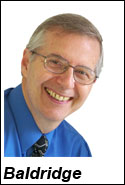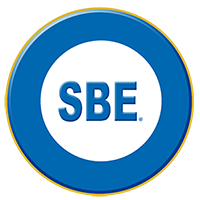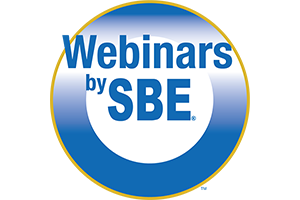Module 1: Introduction to RF
Originally streamed January 26, 2017
Introduction to Radio Frequency (RF). The webinar includes: Definition of RF and Electromagnetic radiation and spectrum, electric and magnetic fields, the Inverse Square Law and attenuation of EM waves, frequency bands and RF wave characteristics, units of power (dB and dBm), history of RF, and safety issues introduction: exposure and limits.
Module 2: Transmission Lines
Originally streamed March 2, 2017
Covers the definition and types of transmission lines, impedance and its importance to applications; losses associated with coax; wavelength considerations that affect the broadcast facility; return losses (including VSWR and standing waves), and power considerations of both coax and connectors.
Module 3: Towers, Antennas, and Transmission Systems
Originally streamed April 17, 2017
Covers transmission systems block diagram; common RF system componenets; antennas and terms; isotropic radiator; dipole and polarization; wavelength versus antenna size; variations on the dipole; and antenna gain introduction.
Module 4: Antenna Gain – Feed Line Loss
Originally streamed May 15, 2017
Covers transmission systems block diagram; common RF system components; antennas and terms; isotropic radiator; dipole and polarization; wavelength versus antenna size; variations on the dipole; and antenna gain introduction.
Module 5: Modulation Fundamentals
Originally streamed June 8, 2017
The information in Modules 2 and 3 focus into this important discussion highlighting the relationship between gain and loss. Calculations and examples are discussed in coverage requirements; ERP versus TPO; review of directivity and gain; system losses; single radiator, multiple radiators, and other gain/loss calculations.
Module 6: AM, FM, TV RF Propagation
Originally streamed July 17, 2017
This introductory propagation webinar builds upon the previous modules with further discussion of the various ways RF is propagated in the atmosphere. The discussion covers free space path loss; terrestrial propagation; predicted coverage and the aspects that can affect reception (such as terrain and interference); and a more in-depth look into AM, FM & TV signals.
Module 7: RF Test and Measurement
Originally streamed August 21, 2017
Part seven of an eight-part series. This introductory RF test and measurement webinar will explore the common transmission measurements that engineers will be called upon to perform, including frequency, power, occupied bandwidth, and modulation. Technical considerations specific to each test will be considered along with applicable FCC rules. A brief look into antenna and feed-line measurements will furnish a better understanding of what to expect from a good operating transmission system. Tests specific to AM, FM and TV broadcast will be examined.
Module 8: FCC Regulations
Originally streamed September 18, 2017
Part eight of an eight-part series. This introduction to FCC regulations will expolore the rules commonly applicable to broadcast facilities, which all engineers will be called upon to understand and apply. Topics include Regulations: Friend or Foe?, Navigating the Maze, About the FCC, Checklists, Rules Common to All Services, AM specific, FM specific, DTV specific.
 Instructor: Dennis Baldridge, CPBE, 8-VSB, AMD, DRB, CBNT
Instructor: Dennis Baldridge, CPBE, 8-VSB, AMD, DRB, CBNT
Instructing and the creator of the RF101: Terrestrial Transmission Systems course is Dennis Baldridge, CPBE, 8-VSB, AMD, DRB, CBNT, a veteran of the broadcast engineering field for more than 30 years. Baldridge is a Senior member of the SBE, holds an FCC Lifetime General License (formerly a First Class FCC License) and Amateur Radio Extra Class License (K0DB). He also holds a M.A.E. and teaches science courses for Upper Iowa University. As owner of Baldridge Communications, LLC, he works as a contract engineer and has also authored articles for Radio Guide. Baldridge served as an inspector for the FCC Alternate Inspection Program of the Wisconsin Broadcasters Association.
SBE Recertification Credit
The completion of each webinar from Webinars by SBE qualifies for 1 credit, identified under Category I of the Recertification Schedule for SBE Certifications.
Registration
Each webinar is approximately 1 hour in length.
SBE Members: $90
MemberPlus Members: Free
Non-Members: $120
More information about registering using the SBE MemberPlus benefit
All SBE webinars are included at no additional cost for members who upgrade or join using the SBE MemberPlus membership option. You get access to all archived SBE webinars and any new live webinars SBE presents, all for no extra cost.
Access to the SBE webinars through the SBE MemberPlus program is limited to the MemberPlus-purchaser only. You are not permitted to distribute, sell, copy, share, project or otherwise make the webinars available to any other individual or group without express written permission by the SBE.
Questions?
If you have questions regarding this webinar, contact Cathy Orosz via email or by phone at 317-846-9000.


